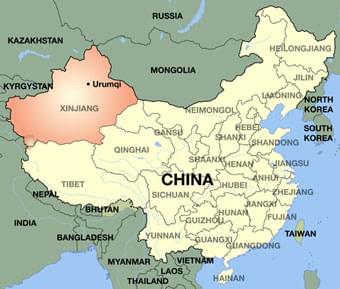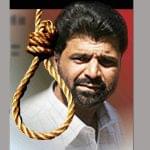China
Uighur Conflict Spills Over, 100 die

China’s official newspaper announced yesterday that nearly 100 people that included 59 terrorists died in a militant attack last week marking the latest episode in Beijing’s increasingly turbulent relationship with Uighurs, a Sunni Muslim ethnic group native to the country’s far-western Xinjiang region.
The Chinese government did not release full details of the incident but basically pronounced that “last Monday, armed and masked militants attacked police stations and government offices in Shache County, near Kashgar in China’s far west”. The official Chinese news agency Xinhua reported 37 Han Chinese and two Uighur civilians were among the dead.
Tensions between China’s Communist Party and its Uighur Muslim population that comprises 45 percent of Xinjiang’s population, has existed throughout the history of the People’s Republic of China. The past twelve months had been particularly violent with reports of armed Uighur attack on government offices in the Xinjiang city of Lukqun that had killed thirty five in October 2013, a Jeep carrying five Uighurs plowed into Beijing’s Tiananmen Square, the symbolic center of the Chinese nation, killing two and injuring dozens more.
And 2014, the violence continues with police killing six Uighurs in the town of Aksu in January, while in May assailants detonated explosives in a vegetable market in the regional capital of Urumqi, killing 43. Most spectacularly, in March, a group of 10 masked militants indiscriminately attacked passengers at the railway station in Kunming, Yunnan province, killing 30.
The Chinese Government captured, tried and killed those responsible for past episodes of Uighur violence, but has struggled to find a solution for the underlying causes of the unrest. Many Uighurs, who are Sunni Muslim and speak a Turkic language, chafe at Chinese repression of their language and culture, and have accused Beijing of economic and social discrimination. On the other hand the Chinese government, blames Uighur violence on terrorist groups, such as the shadowy East Turkestan Islamic Movement, which allegedly receives financing and support from outside China.
China, which has identified Nuramat Sawut as the ringleader of the most recent attacks, started a yearlong crackdown on terrorism following the attacks on the Urumqi vegetable market in May. Referring to Islamic extremism in the region, Zhang Chunxian, the Communist Party’s top official in Xinjiang, vowed “to pursue the tottering enemy with force.” Meanwhile, Dilhat Raxhit, spokesperson of the “World Uighur Congress”, an advocacy group, has confirmed that Beijing’s repressive policy if left unchanged, “could lead to even more clashes.”
The Chinese Government had curbed individual religious rights of people dictating them of not observing ‘fast’ during the holy month of Ramzan if they were on official duty. They also forbade students from fasting so that it did not affect their health.
